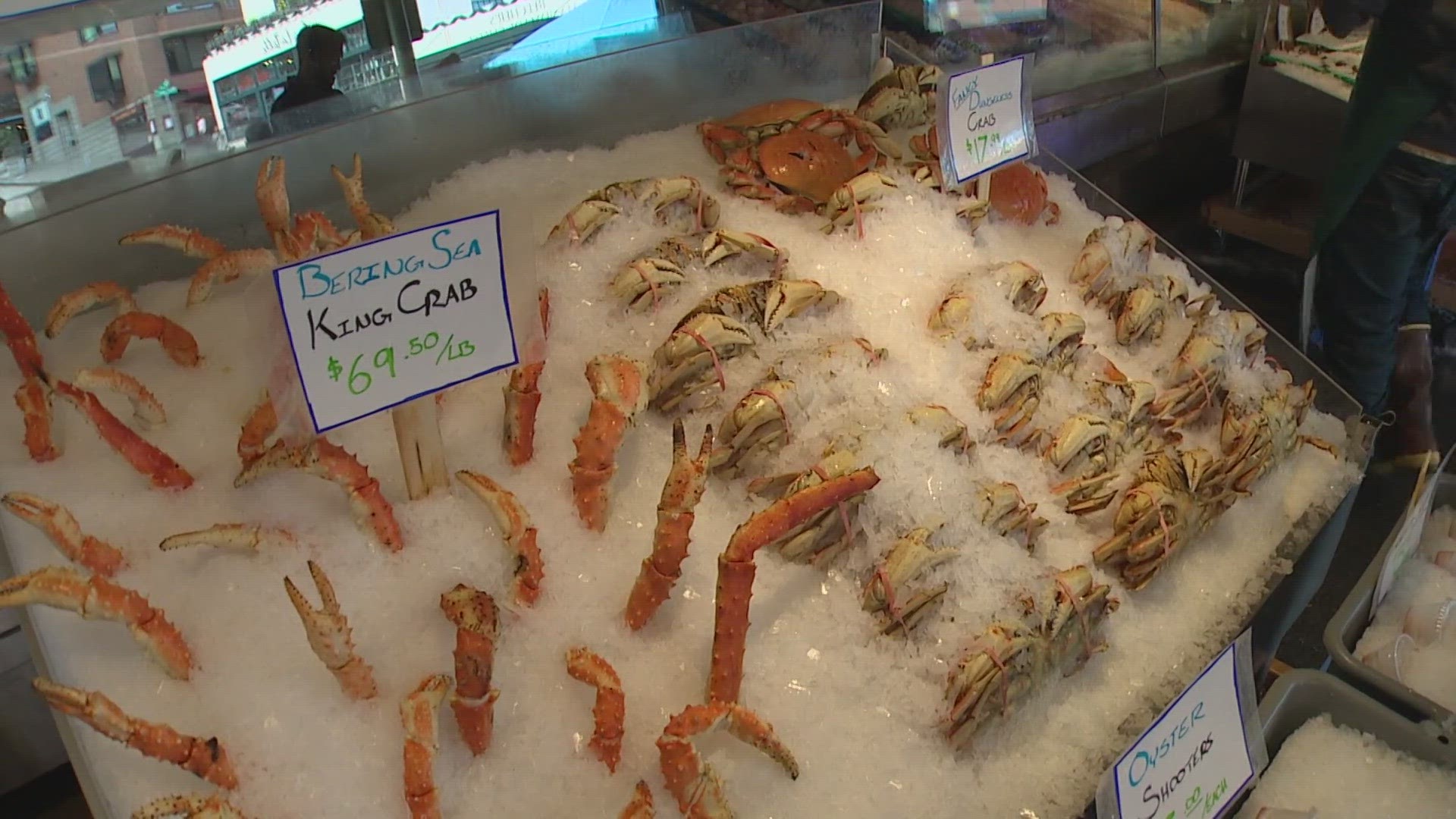SEATTLE — The Alaska Department of Fish and Game announced Friday it will reopen the Bristol Bay red king crab fishery, but the Bering Sea snow crab fishery will remain closed. It adds to the economic challenges some businesses have been facing.
"You're always gonna see highs and lows as a commercial fisherman," crabbing captain Casey McManus said. "Sometimes it's good, sometimes it's bad, feast or famine. But lately, the highs are a lot lower and the lows are even lower than that. Turns out rock bottom has a basement."
McManus says reduced allowable catches and fishery closures come on top of other economic challenges. Inflation has raised the cost of groceries, giving customers less freedom to spend on fresh seafood. The effects ripple to all kinds of businesses.
"The seafood sector being what it is in this area, in Washington state, it affects everybody when we have bad seasons. It's right down to the guy who owns the fuel dock, the guy who sells the parts, the guy who runs the fuel yard," McManus said. "None of these [crabbers] can afford to pay bills at those places, so they just don't do business with them. Well, each one of those businesses employs 20 or 30 people- and that ripple effect keeps going out. You get down to the restaurants and everything else, fish aren't there being served, now you're talking about restaurant owners and waitstaff at a restaurant being affected by it."
Local seafood vendors say they have been working to keep prices affordable while also dealing with many challenges. Neal Brebner is a co-owner of City Fish, the oldest fish stand in Pike Place Market. He spent two decades selling there at another stand.
"I've been doing it for 22, 23 years and am pretty much addicted to the action, addicted to the flow," Brebner said. "It started off as a summer job, after college, my previous employers were good to me and I ended up staying for 22 years."
He says he's seen a significant rise in costs of everything needed to do business.
"The increase, in general, has been amazing, through the roof," Brebner said. "Cost of diesel going up, everything in general, demand, prices have gone through the roof."
The crabbing closures, too, have made things tougher, but fortunately for City Fish, the vendor sells a wide variety of seafood.
The situation is different for small family businesses that rely on crabbing for most of their income.
Captain Mark Casto of the Pinnacle says he's relieved to see the Bristol Bay red king crab fishery back open, but Bering Sea snow crab closing and reduced allowances have had an impact.
"This year we're actually combining my brother's crew and my boat's crew to make it worthwhile, with the quota, luckily there's enough crabs on the ground to have a fishery, but the fishery's not big enough to send two large boats, so we'll combine both our quotas and go out and do it on our boat," Casto said.
He says it comes on top of reduced prices from processors for fresh catches in the years since the pandemic.
"Everything kind of changed this last year, seafood prices all went down," Casto said. "It was kind of like a double whammy there. We were getting hit hard with quotas, and if we do get a quota the prices have been pretty low. It is what it is and we'll keep plugging along."
Still, he and his crews are making the best of a tough situation.
"We're family owned, and these closures have been pretty tough," Casto said. "Between us and the crews and everybody trying to make a living...We're glad to see it get back going now... hopefully, we can turn a corner and get back to where it once was."
Crabbers impacted by closures and reduced catches have been working with other types of fish. McManus says one way people can support them is by buying wild Alaskan seafood of all kinds whenever possible.
"If the end consumer requires that to be Alaskan seafood and we get those sales up, it will boost our entire market to where maybe some of these crab boats that are missing crab seasons right now, they might be able to make enough money on the salmon side to survive through this low in the crab fishery," McManus said.

